Roast beef — the star of many holiday feasts, Sunday dinners, and hearty sandwiches — owes much of its appeal to one key element: seasoning. Whether you're preparing a classic prime rib or experimenting with global spice blends, the right seasonings can elevate your roast from good to unforgettable.
- Why Seasoning Matters in Roast Beef
- Essential Seasonings Every Roast Needs
- Global Spice Blends for Unique Roast Flavors
- DIY Rubs & Marinades for Homemade Perfection
- Comparison Table: Best Seasonings by Use Case
- Buying Guide: How to Choose the Right Seasoning
- Tips for Applying Seasonings Like a Chef
- Frequently Asked Questions About Roast Beef Seasonings
- Conclusion
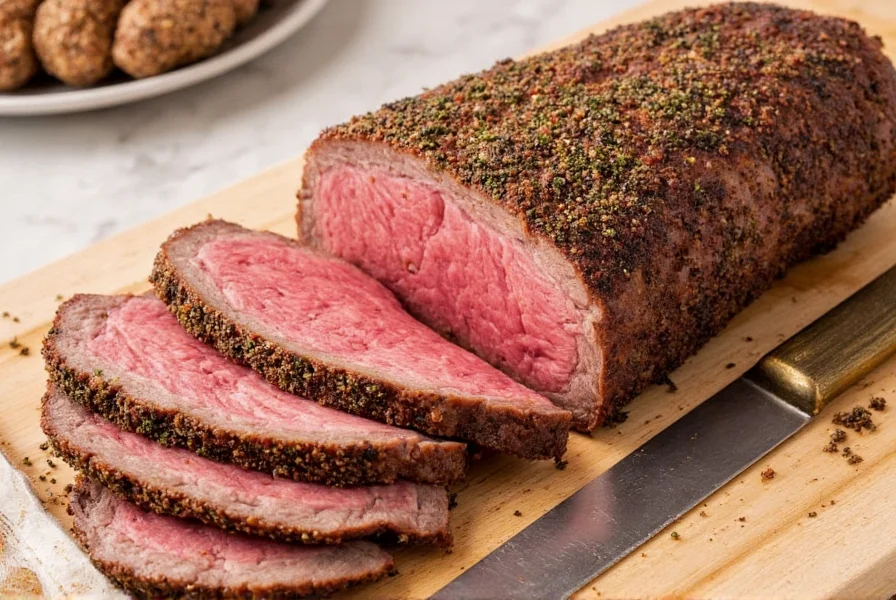
Why Seasoning Matters in Roast Beef
Rubbing, marinating, or injecting seasonings into beef isn't just about taste — it's a science and an art. The right blend of herbs and spices enhances the natural umami of the meat, balances fat content, and creates a delicious crust (or bark) that seals in juices.
Seasoning also impacts texture. For example, salt draws out moisture initially but then works its way back in, helping to tenderize the meat during roasting. Herbs like rosemary and thyme release aromatic oils when heated, while garlic and black pepper add sharpness and depth.
Essential Seasonings Every Roast Needs
Let's start with the basics — the foundational ingredients that should be staples in any kitchen looking to roast beef to perfection:
- Salt – Not just for flavor; essential for drawing out moisture and aiding in Maillard reaction (browning).
- Freshly Ground Black Pepper – Adds bite and helps activate other flavors.
- Garlic Powder or Minced Garlic – Offers savory richness and depth.
- Onion Powder or Granules – Complements beef's sweetness without overpowering it.
- Dried Rosemary – Aromatic and earthy; ideal for slow roasting.
- Thyme – Subtle, herbal notes that pair well with beef fats.
- Smoked Paprika – Adds color and a subtle smoky warmth.
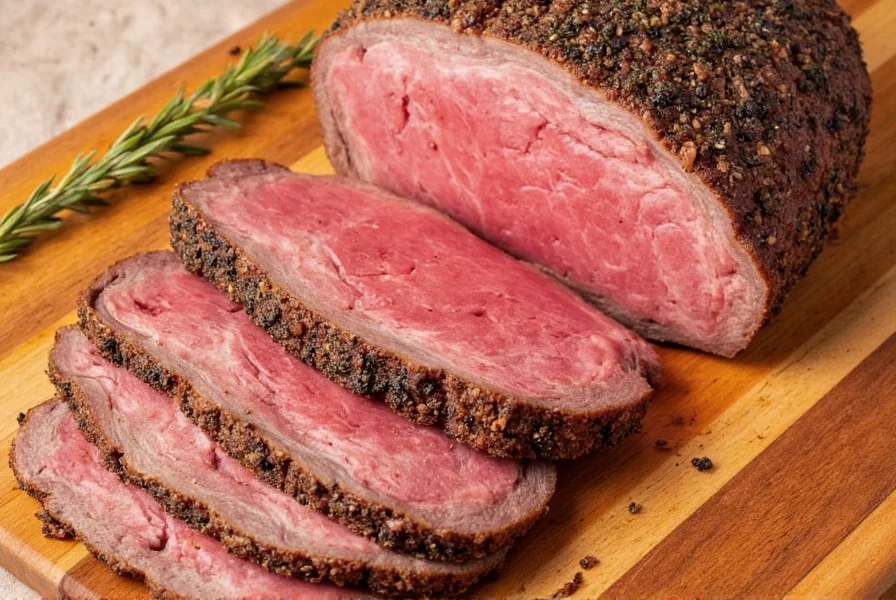
Global Spice Blends for Unique Roast Flavors
Don't be afraid to venture beyond the classics! Here are some global-inspired seasoning ideas that will transport your roast beef across continents:
- French Herb Blend (Herbes de Provence): Combines lavender, thyme, rosemary, basil, and savory for a floral yet savory roast.
- Mediterranean Mix: Oregano, lemon zest, garlic, and smoked paprika bring a bright, sunny flair.
- Tex-Mex Rub: Chili powder, cumin, smoked paprika, cayenne, garlic, and lime zest for a bold, spicy twist.
- Asian Fusion: Soy sauce, five-spice powder, ginger, garlic, and sesame oil for an umami-rich roast.
- Indian Garam Masala: Warm spices like cardamom, cloves, cinnamon, and coriander offer complex layers of flavor.
DIY Rubs & Marinades for Homemade Perfection
Creating your own rubs and marinades is both fun and rewarding. Here are two crowd-pleasing recipes to get you started:
Classic All-Purpose Roast Beef Rub
- 2 tbsp coarse sea salt
- 1 tbsp freshly ground black pepper
- 1 tbsp garlic powder
- 1 tbsp onion powder
- 1 tsp dried rosemary (crushed)
- 1 tsp dried thyme
- 1 tsp smoked paprika
Mix all ingredients together and apply generously to the beef at least an hour before roasting. Let sit uncovered in the fridge for deeper flavor penetration.
East Meets West Marinade
- ¼ cup soy sauce
- 2 tbsp olive oil
- 2 tbsp honey
- 1 tbsp Dijon mustard
- 2 cloves garlic, minced
- ½ tsp ground ginger
- ½ tsp crushed red pepper flakes
- 1 tsp smoked paprika
Whisk all ingredients together and pour over beef roast. Marinate overnight in the fridge for best results. This is especially great for flank steak or top round cuts.
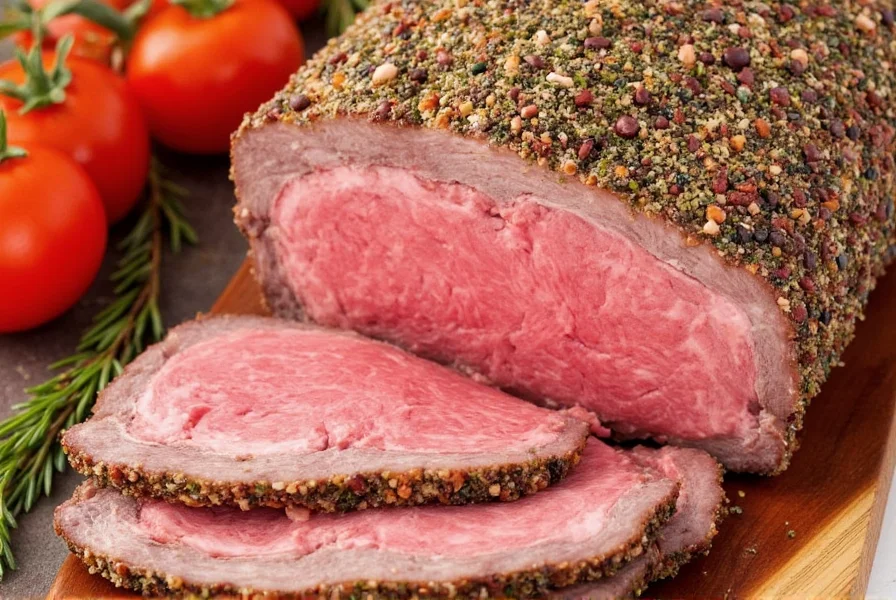
| Use Case | Recommended Seasoning | Flavor Profile | Best For |
|---|---|---|---|
| Classic Roast | Salt, Black Pepper, Rosemary, Thyme | Earthy, aromatic, savory | Prime rib, sirloin, chuck roast |
| Spicy Kick | Chili powder, Cumin, Cayenne | Smoky, hot, bold | Flat iron, flap steak, London broil |
| Sweet & Savory | Brown sugar, Mustard, Paprika | Smoky, sweet, tangy | Brisket, bottom round, pot roasts |
| International Twist | Garam masala, Soy sauce, Five-spice | Complex, layered, exotic | Exotic dishes, fusion cooking |
| Quick Fix | Premixed Steak Seasoning | Convenient, balanced | Busy cooks, last-minute meals |
Buying Guide: How to Choose the Right Seasoning
If you're not making your own, choosing the right store-bought seasoning can be daunting. Here's what to look for:
- Freshness: Check the expiration date and opt for smaller containers if you don't cook roast beef often. Whole spices retain freshness longer than ground ones.
- Ingredients List: Avoid fillers like anti-caking agents and artificial preservatives. Look for pure blends with minimal additives.
- Heat Level: If serving to a mixed group, opt for mild or medium heat levels. Spicy blends can be added separately for customization.
- Brand Reputation: Trusted brands like McCormick, Morton & Bassett, and Simply Organic offer reliable quality and consistent flavor profiles.
- Packaging: Resealable containers help preserve aroma and potency. Glass jars are preferred for long-term storage.
- Price vs. Value: While expensive doesn't always mean better, investing in high-quality spice blends pays off in flavor and performance.
Top Recommended Store-Bought Seasonings
- McCormick Perfect Pinch Prime Rib Seasoning
- Features: Balanced blend of herbs and spices tailored for roast beef
- Advantages: Easy to use, consistent flavor, no artificial additives
- Use Cases: Classic roast beef, grilled steaks
- Audience: Home cooks and beginners
- Occasion: Weeknight dinners, Sunday roasts
- Badia Traditional Adobo Seasoning
- Features: Latin-inspired mix with garlic, oregano, and citrus notes
- Advantages: Adds complexity quickly, versatile for multiple cuisines
- Use Cases: Roast skirt steak, flat iron, taco meats
- Audience: Culinary enthusiasts and adventurous home chefs
- Occasion: Parties, casual gatherings, BBQ nights
- Oprah's Favorite Salt-Free Seasoning Blend
- Features: No added sodium, rich in herbs and vegetables
- Advantages: Healthy alternative, perfect for low-sodium diets
- Use Cases: Lean cuts, health-focused meals, medical dietary plans
- Audience: Health-conscious individuals and families
- Occasion: Daily cooking, wellness-focused events
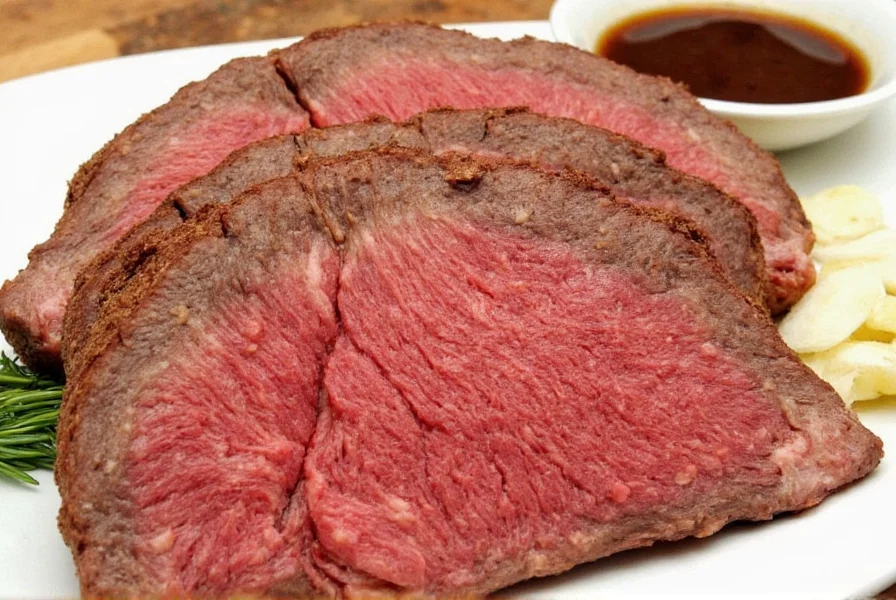
Tips for Applying Seasonings Like a Chef
Even the best spices won't shine unless applied properly. Here are some professional tips to maximize flavor absorption:
- Dry It First: Pat the beef dry with paper towels before applying seasoning. Moisture prevents proper adhesion and browning.
- Apply Generously: Don't be shy! A thick, even layer ensures every bite is flavorful.
- Rest It: Allow seasoned beef to sit uncovered in the fridge for at least an hour — ideally overnight — to let the spices meld with the meat.
- Rub Into the Grain: Press the seasoning into the surface rather than just sprinkling it on.
- Layer Flavors: Combine dry rubs with wet marinades or injectable sauces for multi-dimensional flavor.
- Balance Sweet & Savory: Adding a bit of brown sugar or molasses can balance saltiness and enhance caramelization.
- Reapply During Cooking: For long roasts, sprinkle additional seasoning halfway through cooking to refresh the flavor.
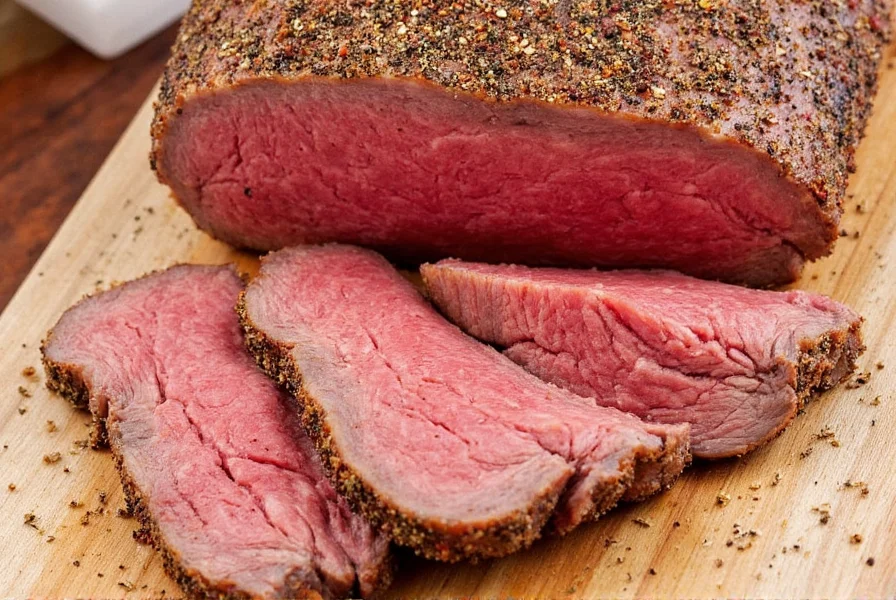
What are the essential seasonings for roast beef?
The essential seasonings for roast beef include salt (crucial for flavor and texture development), freshly ground black pepper, garlic powder or minced garlic, onion powder, dried rosemary, thyme, and smoked paprika. These create a balanced foundation that enhances beef's natural flavors without overpowering them.
How far in advance should I apply seasoning to roast beef?
For best results, season roast beef at least 1 hour before cooking, but ideally 12-24 hours in advance. When you salt beef well in advance (a technique called "dry brining"), the salt initially draws out moisture, then gets reabsorbed into the meat, seasoning it throughout and improving texture. Store the seasoned meat uncovered in the refrigerator during this time.
Can I use fresh herbs instead of dried for roast beef seasoning?
Yes, you can use fresh herbs, but you'll need to adjust the quantities. As a general rule, use three times the amount of fresh herbs compared to dried (since dried herbs are more concentrated). Fresh rosemary and thyme work beautifully when finely chopped and mixed with oil to create a paste that adheres well to the meat. Note that fresh herbs are better for shorter cooking times as their delicate flavors can diminish with long roasting.
Should I salt roast beef before cooking?
Absolutely. Salting is not just for flavor—it's a critical step for texture. Salt helps draw out moisture initially, then gets reabsorbed, seasoning the meat throughout and helping to tenderize it. For large roasts, salting 24 hours in advance (dry brining) yields the best results. For last-minute seasoning, apply salt at least 45 minutes before cooking to allow time for it to be absorbed.
What's the difference between a rub and a marinade for roast beef?
A dry rub is a mixture of dry seasonings applied to the surface of the meat, creating a flavorful crust. A marinade is a liquid mixture (typically containing acid like vinegar or citrus) that the meat soaks in, which can help tenderize tougher cuts. For large roasts, dry rubs are generally preferred as marinades don't penetrate deeply into thick cuts. However, for leaner cuts like flank steak, a marinade can add both flavor and tenderness.
How much seasoning should I use on roast beef?
A good rule of thumb is to use about 1 teaspoon of seasoning blend per pound of meat. For a basic salt-and-pepper rub, use approximately 1/2 teaspoon kosher salt and 1/4 teaspoon black pepper per pound. The key is to apply a visible, even layer that covers the entire surface without piling up in spots. When in doubt, it's better to slightly over-season than under-season, as excess won't all absorb into the meat.
Can I use the same seasoning for different cuts of roast beef?
While you can use the same basic seasoning for different cuts, you might want to adjust based on the cut's characteristics. Richer cuts like prime rib can handle more robust seasonings, while leaner cuts like eye of round may benefit from slightly sweeter or more acidic seasoning profiles to balance their texture. Tougher cuts that will be slow-roasted can handle more intense spice blends that mellow during long cooking.
How do I store leftover seasoning blends?
Store dry seasoning blends in airtight containers away from heat, light, and moisture. Glass jars with tight-fitting lids are ideal. Properly stored, most dry spice blends maintain their potency for 6-12 months. For best flavor, write the preparation date on the container. Avoid storing spices above the stove or near other heat sources, which accelerate flavor loss.
Conclusion
Roast beef may be a classic dish, but the right seasonings can make it anything but ordinary. From simple salt-and-pepper rubs to global spice adventures, there's a whole world of flavor waiting to transform your next roast.
Remember, seasoning is personal. Don't be afraid to experiment with combinations, adjust heat levels, or create signature blends that reflect your tastes. With the knowledge and tools provided here, you're now fully equipped to master the art of spicing up your roast beef like a seasoned pro.
So grab your favorite cut, stock your pantry with fresh spices, and get ready to impress your guests — or just yourself — with a roast that's bursting with flavor.

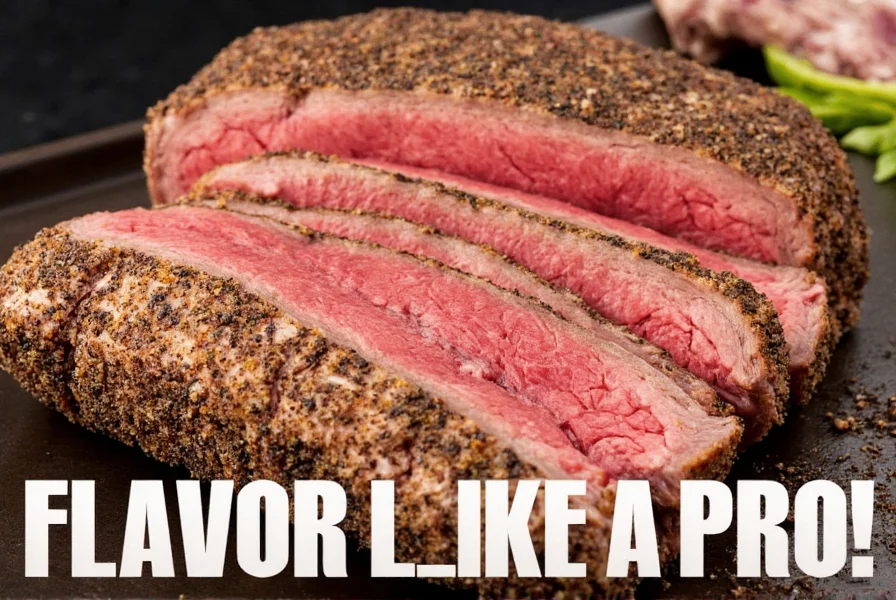









 浙公网安备
33010002000092号
浙公网安备
33010002000092号 浙B2-20120091-4
浙B2-20120091-4